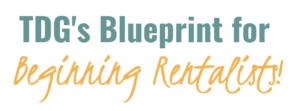
In the vacation rental industry, the connections we make with other vacation home pros are one of our most valuable assets. Case in point: the lovely Holly Webb. Holly and I both won makeovers for our vacation rental websites over on Matt Landau’s Vacation Rental Marketing Blog, and I was lucky enough to meet Holly in person at one of Matt’s Inner Circle Meet-ups. We’ve stayed in touch ever since! Holly is both a vacation rental owner (she owns two vacation rentals in Yosemite) and a CPA with a client portfolio of over 50 vacation rental property owners. So, naturally, I asked her if I could pick her brain for the benefits of my TDG followers! Keep reading to find out why CPA’s are important for , advice, whether 1099s are really that important, how many nights you can spend in your own rental (aka ), and more.
Why do I need a CPA?
A CPA will make sure you are taking appropriate deductions, give you confidence that you have captured all and , reduce the risk for future audits, optimize your , and, most importantly, offer you peace of mind. is much less stressful with a professional in your corner!
Holly’s Tip: Find a CPA that either has a or has direct experience with , , and . The industry is full of its own quirks, and it’s helpful to have someone in-the-know.
What is the best way to get organized for my annual accounting meeting?
First and foremost, open a dedicated checking account with ATM card and a credit card that is only used for your vacation rental business. Remember to use these channels for any and for your . If you commingle funds with your own personal accounts, there’s a good chance that you are missing valuable opportunities and . Not to mention adding the hassle of scouring all of your bank accounts to search for any -related !
For those who have more time, QuickBooks and Quicken are also great tools to keep track of your vacation rental accounting.
Holly’s Tip: Ask your advisor for a checklist of potential expenses before your meeting. Come prepared with detail on all your income collected during the year and amounts expended. At least roughly categorize the expenditures.
Do I have to send a 1099 to my vendors?
The answer is YES! By January 31st of each year, you must send a 1099 to anyone to whom you paid $600 or more to do work on or at your vacation property in the previous year (as long as they are not incorporated).
It’s best to negotiate this up front with each of your vendors, so that there are no surprises at the end of the year. As soon as you begin working with a new person or company, be sure they complete and sign a W-9 form, which will be used to prepare the 1099 at the end of the year. This sheet also allows the vendor to indicate if they are incorporated (if they are, you do not need to send a 1099).
Get a jump on this, as nothing is worse than starting tax time with a mad scramble to get information from a dozen different sources!
Helpful Link: Reporting Payments to Independent Contractors
IRS Form: IRS 1099 MISC
Holly’s Tip: Never use your own social security number on the 1099. Instead, apply for a Tax ID number (EIN also known as Employee Identification Number) on the IRS website. Here’s the link to apply for an Employee Identification Number now if you don’t already have one.
How often can I use my vacation rental?
You can use your vacation rental for personal purposes for 14 days, or 10% of nights rented, whichever is greater. But remember: separate from these personal-use days, you can also stay at your short term rental if you are performing full-time work at the property, like painting, repairs, or general tasks.
The US Master Tax Guide States:
“If the is used as a for more than the GREATER of 14 days OR 10 percent of the number of days during the year for which the home is rented at fair market rental, rental deductions are limited to the gross . If the home is not used as a by the , the rental is not limited to the .”
So, what does this mean?
Holly says “if you make money on your rental, you are potentially okay, but if you lose money, you won’t get to claim the loss if you go over the 14 day personal use limit. Instead, your loss gets turned into a zero.
Most people have a loss on their rentals because of deductions for depreciation, interest and taxes. Even when they cash flow, meaning they collect enough money to pay all their bills, there is usually a loss. However, successful vacation rentals usually have a profit because compared to most rentals the income is higher.”
Thanks for your help, Holly!





How does the IRS actually determine personal use days vs work days? If you’re painting, cleaning, other work on the property throughout the stay – couldn’t those be considered work days?
I asked Holly and she provided this definition –>
My response is from Thomson Reuters 1040 Quickfinder Handbook, which states, “Days spent on repairs and maintenance. Any day spent by a taxpayer working substantially full-time cleaning, painting, repairing, or maintaining a property is not counted as a personal-use day, even if family members use the property for recreation on the same day.”